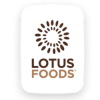An evolving world — increased digital technology, demographic shifts, and global economic realignment — are shaping the food industry. Campbell Soup made this point and talked about its response to these critical factors at its CAGNY presentation Wednesday.
Soup is still important to the company, though it now only holds 34% of its portfolio versus 40% in 2011. And therein lies the arguably most revealing statistic. In today's industry, iconic products — like soda, cereal, and soup, in this case — are making room for innovation.
The demographic shifts today (with millennials and Gen Z becoming the new baby boomers and Gen X) are pushing changes to workflow, to products, to development and to the message at Campbell.
"For the first time, millennials outnumber baby boomers at Campbell's world headquarters," CEO Denise Morrison told conference attendees.
And Gen Z, the first smartphone generation, isn’t far behind: "They process information instantly and lose interest just as quickly," Morrison said.
And that’s backed up by the numbers in one key category. Mobile commerce is expected to hit $150 billion in the U.S. by 2019, according to Forrester Research, a source cited in Campbell's presentation. Mobile devices are replacing the traditional shopping process, whether that's through social media interest or search patterns — and it goes beyond convenience and ease of use.
The digital strategy mirrors efforts across the industry to better engage consumers.
"Overall, We continue to expect digital to represent about 40% of our total marketing spend across the company this year," Morrison said. The company is positioning e-commerce to complement this, with China as a key focus.

GMO labeling is 'moose on the table'
"These seismic shifts are contributing to the challenging operating environment, and as a result, sales growth remains elusive for food companies especially in traditional center store categories," said Morrison. The industry response, she offered, has been traditional tactics like aggressive cost-cutting, acquisitions, and consolidation.
CEO: No middle ground for consumers — "Your company's either transparent or it’s not" $CPB #CAGNY
— David Oliver (@davidolivereats) February 17, 2016
Consumers have made transparency an increasingly important point for manufacturers. Last month, Campbell publicly committed to labeling GMO ingredients in its products over the next 12 to 18 months. The company also threw its support behind national mandatory GMO labeling legislation.
Before Morrison got into the topic at CAGNY, she referred to it as "the moose on the table." She said their decision did not have to do with safety, nor does the company support Vermont's impending GMO labeling law.
Additional transparency efforts highlighted include the company's WhatsInMyFood.com. The information from the site fits with the industry's SmartLabel initiative, according to Morrison.
VC fund
In one of the more lucrative announcements made during CAGNY, the company announced it’s investing $125 million in a venture fund. Acre Venture Partners will be an independent fund managed by outside partners, according to Morrison. Campbell will be the only participant in the fund.
Morrison said that approximately 400 food startups received more than $6 billion in funding since 2010. Morrison also noted Campbell with its limited participation in this sector, needed a more strategic and methodical approach.
The venture capital sector of the food industry is booming. Food and beverage startup accelerator AccelFoods has launched a $20 million fund to provide capital assistance to startups from pre-seed through Series B stages. General Mills is starting a venture capital sector. 301 Inc. has been a part of General Mills for three years, though its first iteration was a way to create smaller brands in-house.
Campbell's move indicates the power of venture capital but not at the expense of increased innovation already within the company.
The trend toward health and wellness
… but, according to Morrison, it's not a trend.
"This holistic approach in health and well-being is not a fad or a trend," she said. "It's a fundamental societal shift and we expect it to accelerate." The company's Bolthouse Farms will introduce 14 new products this spring, across dressings and beverages. It's also expanding its 1915 brand with 6 new items and a plant-based protein drink.
The push in fresh doesn't mean the end of center store, despite large consumer shifts. Morrison pointed out that it's still one of the most profitable sections for food manufacturers and retailers. "The center store is ripe for reinvention," she said.
And more reinvention is coming. In the second half of its fiscal year, the company is launching products like Prego Farmer's Market sauce and three new varieties of Goldfish made with organic wheat. It’s also extending its Plum portfolio with easy prep meals, baked snacks, and infant formula.

Earnings sneak peek
The company isn't releasing earnings until next week, but CFO Anthony DiSilvestro gave conference attendees a preview.
Estimated Q2 net sales declined 1%, reflecting the negative impact of currency translation, though partly offset by the Garden Fresh Gourmet acquisition. Because Q2's bottom line results proved stronger than expected, the company increased its full-year guidance. Campbell previously announced its savings target increase to $300 million, up from previous ones of $200 million and $250 million.
One of the company's cost-saving strategies, zero-based budgeting (ZBB), is in use across the industry, like at Kellogg and Kraft Heinz.
But what do these cost savings actually look like? The company offered updates since last year's CAGNY in addition to a look at what zero-based budgeting looks like in its implementation:


The strategic actions, the company said, (acquisitions, plant closures, ZBB) are helping diversify its portfolio.




















